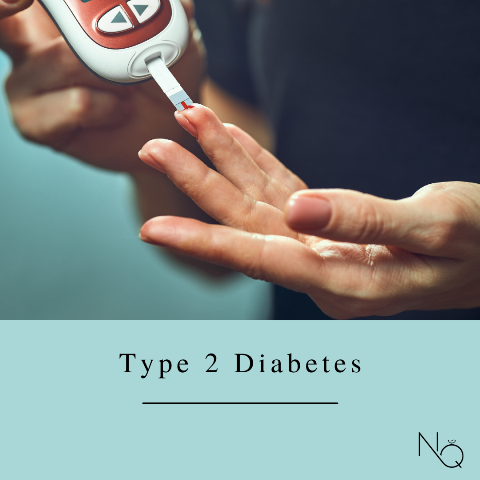What diabetes is
Diabetes is a chronic disease occurring when the pancreas does not produce enough insulin, or the body cannot effectively use the produced insulin. Insulin is a principal hormone that regulates blood glucose. If the blood glucose levels are higher than standard- a condition called hyperglycemia or elevated glucose or elevated sugar and is common in uncontrolled and unregulated diabetes - then over the ages, the damage is created in various organs (like nerves, blood vessels, etc.). We can diagnose diabetes through blood glucose testing.
What type 2 diabetes is
When the body produces insulin but cannot use it effectively, we talk about type 2 diabetes. Sometimes we hear it as non-insulin-dependent or "adult" diabetes since it generally appears at older ages, and exogenous insulin use is not always necessary. In recent years, more and more young people develop diabetes type 2.
Early symptoms of type 2 diabetes
The symptoms of type 2 diabetes are similar to those of type 1 diabetes but are usually less severe. For this reason, type 2 diabetes can be diagnosed several years after the onset and after complications have already appeared. Common symptoms are polydipsia, polyuria, hunger, fatigue, frequent infections and fungal infections, visual disturbances, cramps, numbness in the extremities, and a general feeling of physical discomfort. All this is due to high blood sugar values.
Risk factors for type 2 diabetes
Type 2 diabetes is often a result of excess body weight, physical inactivity, and diet. Other risk factors are central obesity, older age, family history, genetic factors, history of gestational diabetes mellitus, and polycystic ovary syndrome (PCOS).
Prevalence of diabetes
Diabetes has become an epidemic. Specifically:
• 1 in 11 people in the world has diabetes
• Over 95% of people with diabetes have type 2 diabetes
• The rate of type 2 diabetes in Greece is 8%
• An estimated 425 million adults are living with diabetes (2017), a number expected to reach 693 million by 2045
• 1 in 2 people with diabetes remain undiagnosed
• Every 8 minutes 1 person dies because of diabetes
• 80% of type 2 diabetes cases can be prevented by adopting a healthy lifestyle
Principal healthy dietary modifications for type 2 diabetes mellitus
Healthy dietary modifications can prevent, delay the onset, and help treatment of type 2 diabetes. It is significant to maintain a healthy body weight and percentage of fat - especially visceral -, follow a balanced diet, exercise, and avoid smoking. If we have any risk factors for type 2 diabetes, it is important to include proper nutrition and exercise in our routine, in addition to regular examinations. The protection we can get is noteworthy.
• healthy body weight (Body Mass Index BMI between 18.5 and 24.9)
• waist circumference below 80 cm for women and below 94 for men, while values above 88 cm and 102 cm, respectively, are alarming
• moderate intensity exercise for at least 30 minutes a day and most days of the week (at least five), ideally a combination of aerobic exercise with resistance.
• Mediterranean diet
• Stop smoking
Sources
World Health Organization, 2022, Diabetes, https://www.who.int/news-room/fact-sheets/detail/diabetes




